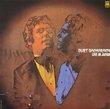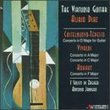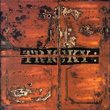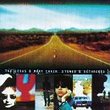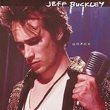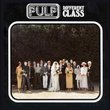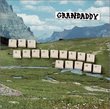| All Artists: Public Image Ltd, Pil Title: Second Edition Members Wishing: 3 Total Copies: 0 Label: Warner Bros / Wea Original Release Date: 1/1/1980 Re-Release Date: 10/25/1990 Genres: Alternative Rock, International Music, Pop, Rock Styles: Hardcore & Punk, Indie & Lo-Fi, New Wave & Post-Punk, Europe, Britain & Ireland, Dance Pop, Progressive, Progressive Rock Number of Discs: 1 SwapaCD Credits: 1 UPCs: 075992328821, 075992328845 |
Search - Public Image Ltd, Pil :: Second Edition
 | Public Image Ltd, Pil Second Edition Genres: Alternative Rock, International Music, Pop, Rock
No Description Available No Track Information Available Media Type: CD Artist: PUBLIC IMAGE LTD. Title: SECOND EDITION Street Release Date: 10/25/1988 |
Larger Image |
CD DetailsSynopsis
Product Description No Description Available No Track Information Available Media Type: CD Artist: PUBLIC IMAGE LTD. Title: SECOND EDITION Street Release Date: 10/25/1988 Similar CDs
Similarly Requested CDs
|
CD ReviewsWorth Your Time daibhidh | Chicago, IL USA | 05/04/2000 (4 out of 5 stars) "This album has already been canonized by critics, so what can I add to it? I find it to be both abrasive and compulsively listenable, with the strange fusion of John Lydon's warbling with the band's music. It's a weird combination that somehow works. "Albatross" leads off and goes on for ten minutes, but after some initial dissonance, I found myself enjoying it. "Memories", "Swan Lake", and "Careering" are more familiar tunes for followers of PiL. Some of the instrumental numbers are quite interesting, including "Socialist" and "Radio 4" -- both of which you can readily imagine in science fiction soundtracks. The dance element to PiL is always apparent in this work, if not for Lydon's voice jolting you back to reality amidst the lingering grooves. Considering what else was out in 1979, this album is far ahead of its time, and holds up well even for jaded listeners of more modern "alternative" bands. Lydon has said in his biography that he considered the Sex Pistols' lone album to be too conventional, and that if he'd had his way, what he'd have put together wouldn't have been listenable. This album gives me a sense of what Lydon may have been envisioning -- it is and isn't listenable. For people who want readily accessible, easily classifiable music, this album would probably offend; if you're after a more nuanced musical experience that's kinda weird, then this one is for you." The sounds of alienation and possibility Ludwig J. Pluralist | Beacon, NY USA | 12/20/2005 (5 out of 5 stars) "This record is a wonderful mix of post-punk experimentation, electro-dub rhythms and neo-Germanic noise-drones. I listened to this on vinyl so much around 1980 that I wore my copy out and needed to buy a second copy. Following the Sex Pistols crash in San Francisco in early 1978, and Johnny Rotten's reclamation of his actual name of John Lydon, and the first PIL record (featuring the up tempo song Public Image) released later that year, the band set to work on a true expression of their possibilities as a band, releasing this record two years later, in 1979 in the U.K (as Metal Box) and in 1980 in the States. Combining Jah Wobble's dub reggaefied bass and Martin Atkins drumming, PIL's rhythm section would be much more `rubbery' and 'slinky' than the Pistol's more rocking beats. And whereas Steve Jones helped give the Sex Pistols a heavy power chord sound, Keith Levine provided a much more experimental, noise-oriented sound. All of this then provided the texture for Lydon to free associate some truly innovative lyrics, which dealt with themes of decay and destruction - all told, the perfect post-punk record from a band that would, briefly, pave the way of post-punk innovation before settling into an unexpected hitmaking complacency. This, then, is a place to hear a bright moment of change on the face of popular music. This is Public Image, Ltd's magnum opus and it still sounds great, so it's not simply one for the archives. It's a record to be listened to still, and to be reflected on. " Corrosive and then . . . Boxodreams | district of columbia | 09/06/2005 (5 out of 5 stars) "context: you're barreling along your punk and merry way, careening recklessly to snarling spiky four-chord men, and suddenly stopped dead in your tracks to see the headstone with RIP at the end of the line in the form of alienation, existentialism, deeply dub-inspired heart hurt and a voice you recognize yet no longer recognize. Stop! Stunned. Then, the door opens -- a new way. Grow."
|

 Track Listings (12) - Disc #1
Track Listings (12) - Disc #1
